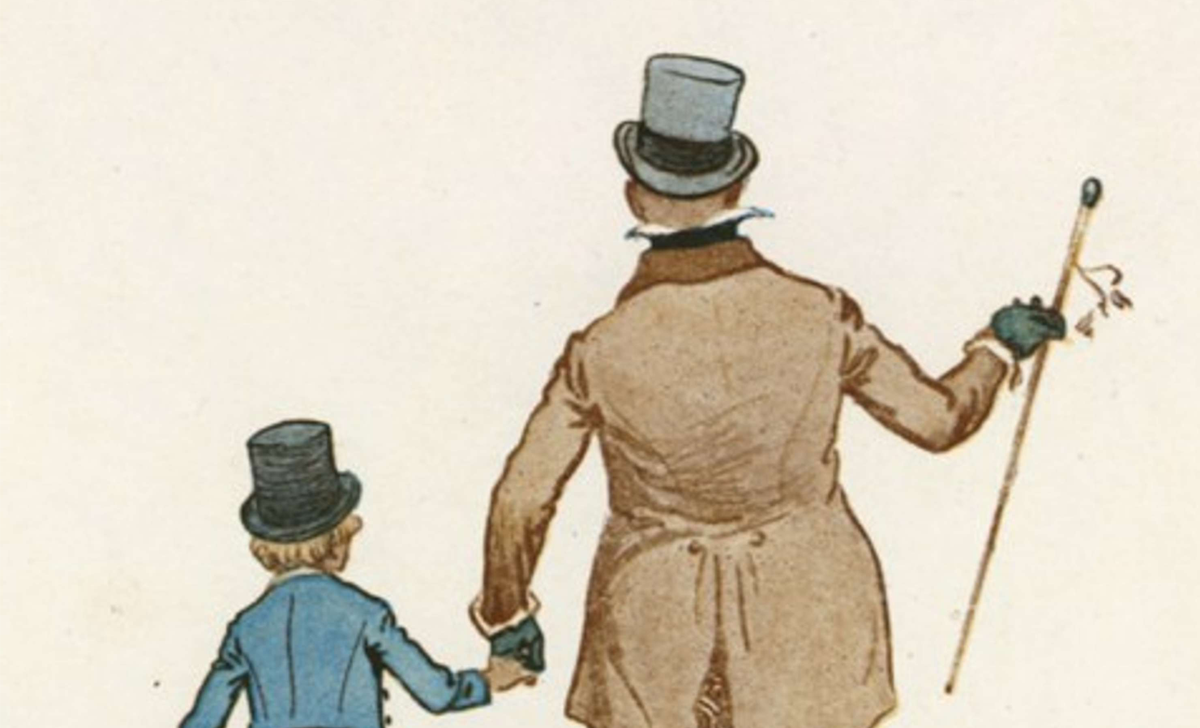
Charles Dickens's David Copperfield is the story of the remarkable life, from cradle to near grave, of the named protagonist. In the opening, David asks the question: “Will I be the hero of my own life?” He leaves the question to the judgment of the reader. I want to talk about one way I was struck by a kind of “everyday heroism” in David’s story, which has edified me as I’ve thought about its application to our own lives and marriages.
Midway through the novel, David is smitten with a beautiful young lady named Dora Spenlow. She is the daughter of his employer. After Mr. Spenlow’s untimely death David begins a courtship with Dora under the watchful eyes of her spinster aunts.
Dora has several qualities to commend her, chief among them are her pure affection and devotion to David and her easy, playful nature. When David and Dora marry, they enjoy a period of blissful love that is quite beautiful. Yet we, the readers, can glimpse something on the horizon that David yet cannot: While David has a far-ranging mind, numerous intellectual interests and pursuits, and a drive to “make something of himself” in the world, his sweet wife Dora does not share these broad horizons but instead has a much closer focus. Her relationship with David and their everyday life together is all the horizon she can muster. When David speaks to her of more complex or grander things, she protests and tells David that she is just his simple “child wife” and to please not trouble her with these thoughts beyond her grasp.
It is then that David encounters a phrase, uttered by another in a context outside his marriage, that rings in his ears and ours: “There can be no disparity in marriage like unsuitability of mind and purpose.” We see that this disparity is a fact of their marriage, and although David does not come quite out and say it, we recognize that he senses it as well.
If this were a modern novel, or Netflix TV series, we know what would come next. David would eventually leave Dora, have an affair, or abandon her affections to pursue his “true self” and its ambitions, perhaps in the arms of someone who more aligns with his deepest interests and desires.
But this is not what happens. David does reflect on those words and even reflects that if he had been more self-aware of his own heart and mind as a young man he and Dora might never have married. But he does not view this as a grand mistake to be rectified. He takes his marriage as a given and resolves to be a faithful and good husband to Dora, even if all the cylinders of his self never fire in time with hers. He says:
“There can be no disparity in marriage, like unsuitability of mind and purpose.” Those words I remembered too. I had endeavored to adapt Dora to myself and found it impracticable. It remained for me to adapt myself to Dora; to share with her what I could and be happy; to bear on my own shoulders what I must, and be happy still. This was the discipline to which I tried to bring my heart, when I began to think. It made my second year much happier than my first.
I will not go on with the plot and explain how all this plays out, but instead take this as a departure point for our own lives and marriages. We may not all be in marriages with goals and interests as misaligned as David and Dora’s. But even in the best of marriages, we have ears for that subtle voice that whispers, “Aren’t there parts of who you are that are not shared by your spouse? Aren’t you failing to actualize certain potentials and latent possibilities that could be realized but for the fact that you are married to this person?”
The answers to these questions may well be “yes,” and to the modern self that may be the end of the proof. For if the goal of life is to actualize all of one’s innermost self, and if that is not possible in one’s marriage, then the conclusion is clear: the self must prevail; all obstacles, including marriage, be damned.
But the goal of life is not to actualize all of one’s innermost self, as David recognizes, and we would do well to recognize it also. Rather, the goal is to conform to the image of Christ as we labor faithfully over time in the fields He has placed us in. If we are married, these fields include our relationship with the particular spouse God has given us, and not another. It is notable that Paul does not tell husbands and wives to pursue their happiness and self-actualization to the uttermost, aided by a fully aligned spouse. Instead, he tells husbands to love their wives and wives to respect their husbands, and in so doing to model the mystery of Christ’s relationship with His bride, the Church.
So does this mean that husbands and wives should not endeavor to support each other’s interests, aspirations, and dreams? Of course not. To share a “suitability of mind and purpose” is a wonderful thing. But it does mean that when those spots of misalignment surface, as they will, we would be much happier and content if we, like David, “endeavor to adapt ourselves to our spouse, to share with him or her what we can, and be happy; to bear on our own shoulders what we must, and be happy still,” rather than wallow in discontent fueled by self-focus.
This is not a dismal proposition, a “grin and bear it” with a British stiff upper lip and ultimate resignation of self. For our Lord tells us there is nothing we give up, for the sake of the kingdom of God, that we will not receive back many times more in this age and in the age to come (Luke 18). In this age, our willingness to adapt ourselves to our spouses and love faithfully may see dividends that counterbalance our sacrifices of “self-actualization.” We catch glimmers of this with David, who may have set aside parts of himself for the sake of Dora, but who also experiences an unparalleled love and devotion he would have missed had he not married her. We, too, will often find, if we have eyes willing to see it, that our marriage has not just brought unanticipated areas of sacrifice; it has brought unanticipated areas of richness and opportunity. More significantly, in the age to come, we are promised utter fulfillment and joy with a Lord who has known our innermost selves since before we were born (Psalm 139; Revelation 2.17), and with whom none of our desires, potentials, and possibilities will be wasted.
So, one of my takeaways from David Copperfield (and there were many; I commend this book to you) is to rebuke that demon whisper of “if only your spouse were different, you might do X,” and instead embrace the challenge and high calling of faithfully loving and adapting myself to the woman God has given me (and I hope that woman is reading this, for surely she has had to do the same!) May we all be like David in this regard, and so honor our Lord while being counter-cultural examples to a world that values self-expression and personal fulfillment as supreme goods.







